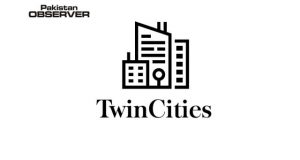Zubair Qureshi
Director Sanitation, Metropolitan Corporation Islamabad (MCI), Sardar Khan Zimri on Wednesday said in an effort bit to achieve the vision of clean and green Pakistan, MCI has considered and finalized the land site for first-ever proper engineered sanitary landfill facility for the capital.
This will help resolve the issue of waste disposal and a report has been submitted to the government for further necessary actions.
While addressing a special seminar titled “Clean and Green Pakistan: Reforming the Waste Management Sector” organised by the Sustainable Development Policy Institute (SDPI) Zimri said MCI was facing to financial challenges and to overcome them, it has been decided to impose sanitation charges against collection of garbage at the door-steps.
Suggestions from citizens of capital are welcome in this regard. He expresses dissatisfaction over the behavior of the citizen and urged the citizen to be responsible in order to keep their surroundings clean. Everyday around 550-600 tons waste produced in the capital and MCI collect all the waste on daily basis, he added.
Dr. Imran S. Khalid, Research Fellow & Head Climate Change Unit, SDPI stated that a proper waste management system is virtually non-existent in Pakistani cities. This leads to open dumping of solid and hazardous waste which are a threat to human health. Moreover, open burning of waste contributes to the growing menace of air pollution. He emphasized the need for municipalities to work with civil society and private sector to develop effective and sustainable mechanisms for properly dealing with our growing waste problem.
Mohammad Hussnain, Operational Head, Rawalpindi Waste Management Company (RWMC) said that Rawalpindi city produce around 830 tons of waste every day, which RWMC, with obsolete resource equipment and limited workforce, is very efficiently (94%) collecting and disposing of. He said that RWMC is working on the vision of zero landfill waste and for that RWMC is working on materializing a proper engineered sanitary landfill facility for Rawalpindi city.
Jamil Asghar Bhatti, President, Solid Waste Association of Pakistan (SWAP) said that when the capital city was being planned, a proper waste landfill site for the city was ignored which led to current chaotic situation. He said that a comprehensive and integrated solid waste management cycle has 6 steps including primary collection, transportation, recycling, disposal, motivation and organisation. He urged the government to adopt this comprehensive waste management cycle, where here stressed more on motivation and involvement of all stakeholders.









